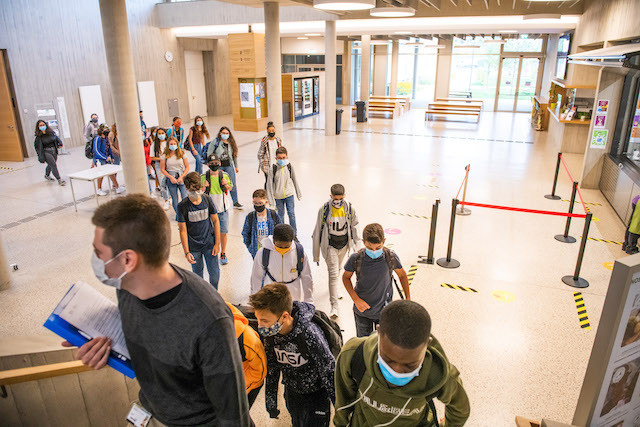Luxembourg has spent the last decade rolling out new public international schools as part of its strategy to attract and retain global talent. The pandemic has given the education ministry little respite. “Demand is higher than offer for the moment, even now, when mobility is restricted because of the pandemic,” education minister Claude Meisch told Delano.
The biggest announcement in 2021 will be the opening of a European-accredited school in Mersch in September 2021. Located initially in the Lycée Classique de Diekirch annexe, the ministry will open a primary and secondary in one-year stages.
A European-accredited school for the capital is also being examined. Meisch was hopeful it would open for the 2021 academic year but that will depend on his ministry securing space. Around 70% of Luxembourg City’s residents are non-Luxembourgers. In addition to fee-paying international schools such as the European School, St George's and the International School, Lycée Michel Lucius (LML) has offered a public English-language stream since 2011.
According to Meisch there are not enough places in the capital and a new school would serve the many international students currently travelling from the City to the European-accredited public Lycée Lënster in Junglinster. Luxembourg’s first public European-accredited school, the international school of Differdange and Esch, will open its permanent secondary facilities, adding more classes starting September 2021. The school will also add an annexe for its primary section in Mondercange in 2023, around the time it will have its first graduating class at secondary.
Longer-term, by 2027-28, the ministry hopes to move LML to a new campus in Kirchberg.

Luxembourg education minister Claude Meisch is pictured during a visit to Ribeschpont primary school in May. Photo: Romain Gamba
Pandemic changes
Another ongoing challenge in 2021 will be responding to the fall-out of the pandemic, which has disrupted education and employment for young people.
One innovation is the Diplome+, a flexible vocational programme for high school graduates who are unable to find work. “We don’t want those young people to waste their time during what could be an entire whole year waiting for a job […] we want to use this time to educate them more and better and to invest in their employability,” said Meisch.
By November, the education ministry had opened seven of these classes supporting over 150 young people. Further classes were planned for 2021 and the programme could be continued after the pandemic.
The summer catch-up programme introduced during the 2020 school summer holidays will be extended, the minister said. “Each year we have some pupils where we have to work with them on one or another course.”
The Diplome+, meanwhile, will be brought under the auspices of the Université Populaire, which will consolidate all the country’s adult learning porgrammes in one place in Esch-Belval. Programmes will also be extended to focus on reskilling workers displaced by the pandemic disruption.
And in terms of equipping young people with sought-after skills in future, the education curriculum will be adapted and computer science will be taught during the first three years at secondary. An introduction to coding and algorithm logic will also be rolled out to learners in cycle 2 at primary level starting in September.
